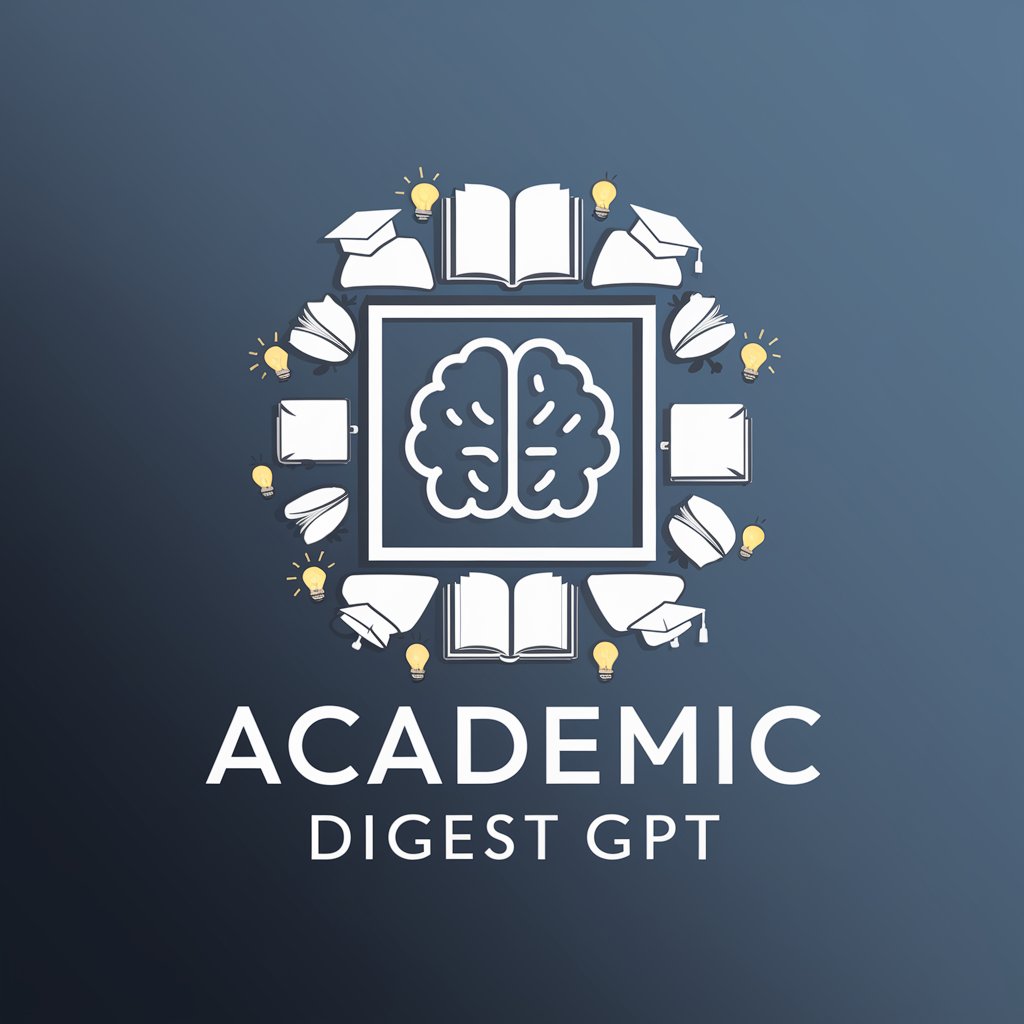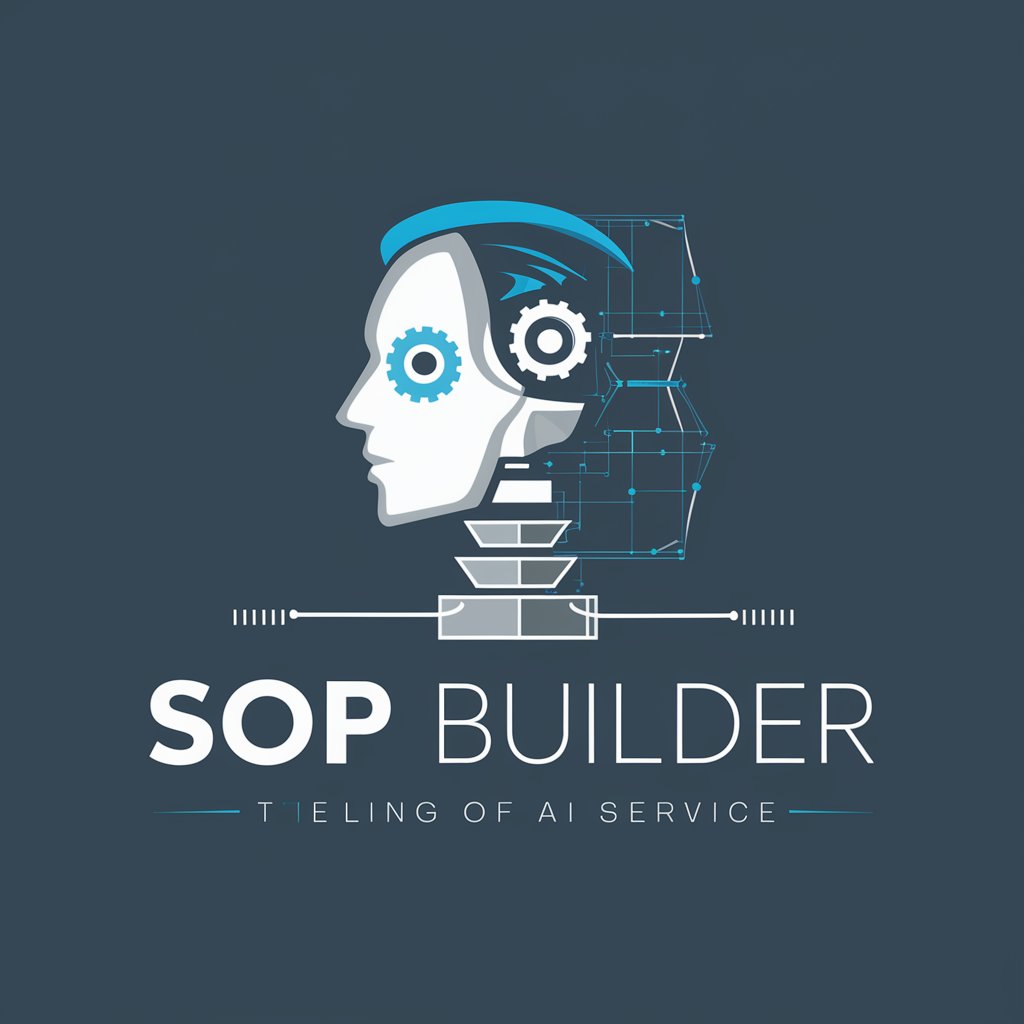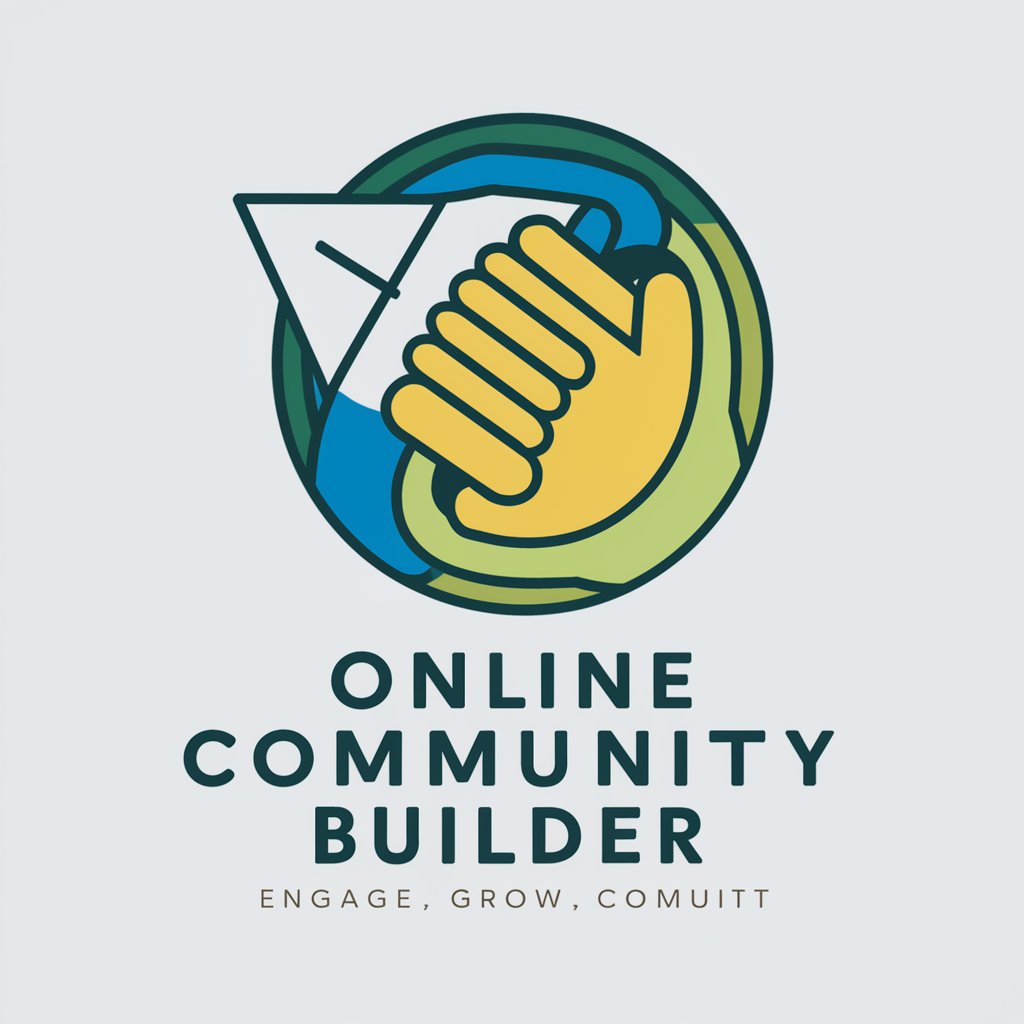
Academic Digest GPT - Academic Summarization Tool

Hello! How can I assist with your academic research today?
Streamlining scholarly communication with AI.
Summarize the key findings of the latest research on climate change impacts on agriculture.
What are the main objectives and results of the paper on neural network advancements in 2023?
Provide an overview of the methodology and conclusions in the recent study on renewable energy adoption.
Explain the primary concepts and implications of the 2022 research on gene editing technologies.
Get Embed Code
Overview of Academic Digest GPT
Academic Digest GPT is a specialized AI tool designed to assist in the analysis and understanding of scholarly articles and academic papers. Its core purpose is to distill complex research materials into easily digestible summaries, effectively translating academic jargon into simpler language. This tool is adept at highlighting key findings, methodologies, results, and conclusions of research papers, providing a comprehensive yet concise overview. An example of its application could be in summarizing a dense, technical research paper on quantum computing, breaking down its complex theories and experimental results into an accessible format for a broader audience. Powered by ChatGPT-4o。

Key Functions of Academic Digest GPT
Comprehensive Summarization
Example
Summarizing a 30-page research paper on climate change, including its hypothesis, research methods, key findings, and implications.
Scenario
Used by a student preparing for a seminar presentation on recent climate studies.
Jargon Simplification
Example
Translating complex terminologies in a neurobiology article into layman's terms.
Scenario
Assisting a journalist in writing an article about a recent neurobiology discovery for a general audience.
Bias Avoidance in Summaries
Example
Providing an objective summary of a politically charged economic research paper without leaning towards any ideology.
Scenario
Used by a policy analyst to gather unbiased insights for a governmental report.
Multi-Disciplinary Coverage
Example
Summarizing articles from various fields like artificial intelligence, sociology, and pharmaceutical sciences.
Scenario
Utilized by a multidisciplinary research team to quickly grasp the essentials of research outside their individual expertise.
Update and Relevance
Example
Incorporating the latest findings and trends in summarizing a paper on renewable energy technologies.
Scenario
Helping an energy consultant stay updated with the latest advancements in renewable energy research.
Target User Groups for Academic Digest GPT
Students and Academics
Students and academics across various disciplines utilize this tool for efficient literature review, understanding complex papers, and preparing for presentations or exams. It aids in grasping new concepts quickly and in-depth study of specific topics.
Researchers
Researchers use Academic Digest GPT to stay abreast of developments in their field or adjacent fields, summarize their own findings, and prepare literature reviews or grant proposals. It aids in saving time and ensuring comprehensive coverage of relevant literature.
Journalists and Science Communicators
This group benefits from simplifying complex scientific concepts for public dissemination. They use it to accurately convey scientific findings to a non-specialist audience, ensuring factual reporting of scientific news.
Policy Makers and Analysts
Policy makers and analysts leverage the tool to quickly understand the implications of scientific research and technological advancements on policy and society, aiding in informed decision-making.
Industry Professionals
Professionals in various industries use it to keep up with relevant academic research, gain insights into emerging trends and technologies, and apply this knowledge to practical business or technological challenges.

How to Use Academic Digest GPT
1
Start with a visit to yeschat.ai to access a complimentary trial, no login or ChatGPT Plus subscription required.
2
Identify the academic paper or scholarly article you wish to summarize. Ensure you have a digital copy or the DOI (Digital Object Identifier) ready for submission.
3
Use the upload feature to submit your document directly or enter specific queries related to your academic research for tailored assistance.
4
Review the generated summary, which includes key findings, methodologies, results, and conclusions, and use the simplification tool to understand complex jargon.
5
For optimal experience, provide specific queries or areas of interest within your document to focus the summarization, ensuring the most relevant insights are highlighted.
Try other advanced and practical GPTs
SOP Builder (Standard Operating Procedures)
AI-Powered SOP Standardization

Fiver Gig Guide
Your AI-Powered Fiverr Navigator

Pomodoro Planner
Boost productivity with AI-powered focus

Cosmetic Formulator for Hair and Skincare
Craft bespoke beauty solutions with AI.

Tincture Dosage Determinator
Precision in Every Drop: AI-Powered Tincture Dosage

India
Discover India's Rich Cultural Tapestry

ACT & SAT
AI-Powered ACT & SAT Mastery

Motivator Mentor
Empowering growth with AI-driven wisdom

Kampsite
Your AI-Powered Outdoor Guide

Lenovo
Empowering your Lenovo experience with AI

Online Community Builder
Empowering Communities with AI

Influenza
Maximize your influence with AI-powered strategies.

Frequently Asked Questions about Academic Digest GPT
What types of documents can Academic Digest GPT summarize?
Academic Digest GPT is equipped to handle a wide range of documents, including scholarly articles, research papers, thesis documents, and conference papers, across various disciplines.
Can Academic Digest GPT help with understanding complex academic jargon?
Yes, it includes a jargon simplification tool that translates complex academic terminology into simpler language, making scholarly content more accessible to a broader audience.
Is there a limit to the length of documents that can be summarized?
While there's no strict limit, shorter documents or sections specified by the user allow for more focused and concise summaries.
How does Academic Digest GPT stay updated on the latest research?
It continuously integrates the latest scholarly publications and research findings into its database, ensuring summaries reflect current trends and developments.
Can I use Academic Digest GPT for non-academic content?
While primarily designed for academic texts, its summarization capabilities can be applied to a variety of complex documents requiring simplification and analysis.